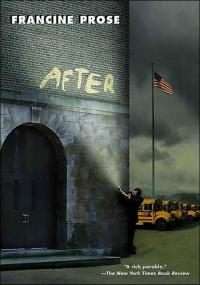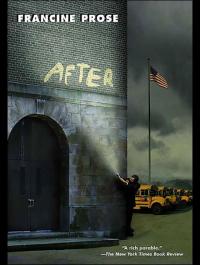About the Book
The shootings at Pleasant Valley were fifty miles away, but at Central High a grief and crisis counselor is hired, security is increased, and privileges are being taken away. If you break the new rules, the punishment is severe. And the rules keep changing every day. It’s for the protection of the students, yet fifteen-year-old Tom Bishop learns that things are far more sinister than they seem. Students and teachers begin disappearing and, with few people aware of the danger lurking, Tom and his friends must make a decision that will change their lives forever.
In her first novel for young readers, Francine Prose chronicles what happens when protection goes too far and what it means to have freedom eliminated in the name of safety.
About the Author
Francine Prose is the author of eleven highly acclaimed works of fiction, including the National Book Award Finalist Blue Angel. Her work has appeared in The New Yorker, the Atlantic Monthly, GQ, and The Paris Review; she is a contributing editor at Harper’s, and she writes regularly on art for the Wall Street Journal. The recipient of numerous grants and awards, including a Guggenheim and a Fulbright, Francine Prose is a Director’s Fellow at the Center for Scholars and Writers at the New York Public Library. Prose lives in New York City and is the president of the PEN American Center.
Discussion Questions
- How do you think that the subject of this book - the line between sacrificing personal freedoms and protecting people - relates to what is happening in the world today?
- Nearly all adult characters in the book are reluctant to stand up to Dr. Wilner. Why do you think that is? Can you think of other times in history when people have been reluctant to confront authority?
- Dr. Wilner calls Tom into his office because there were “questionable materials” in his locker - a copy of Catcher in the Rye and a CD by the Tuff Knox Girls. How is this scene a turning point in the book?
- After Becca reveals to Tom that she was behind the graffiti incidents in school, Tom says he wasn’t sure how he felt about knowing that Becca committed a crime he wouldn’t have had the courage to commit. What does this comment reveal about his character and how can this relate back to his mother’s death when he was younger?
- How are the students treated throughout the story? What kinds of rights do young people have today? Do you think some of our methods of “protecting” teens, such as random drug tests, mandatory school uniforms, etc., impinge on personal freedoms?
- During an assembly, Dr. Wilner praises the success of Jerry Gargiulo, who had been sent to Operation Turnaround a couple of months before. None of the other students seemed to know who he was, and they infer he was sent there because he was an “outsider.” Do you think it is right or wrong to profile kids in terms of characteristics; does this perpetuate stereotypes?

